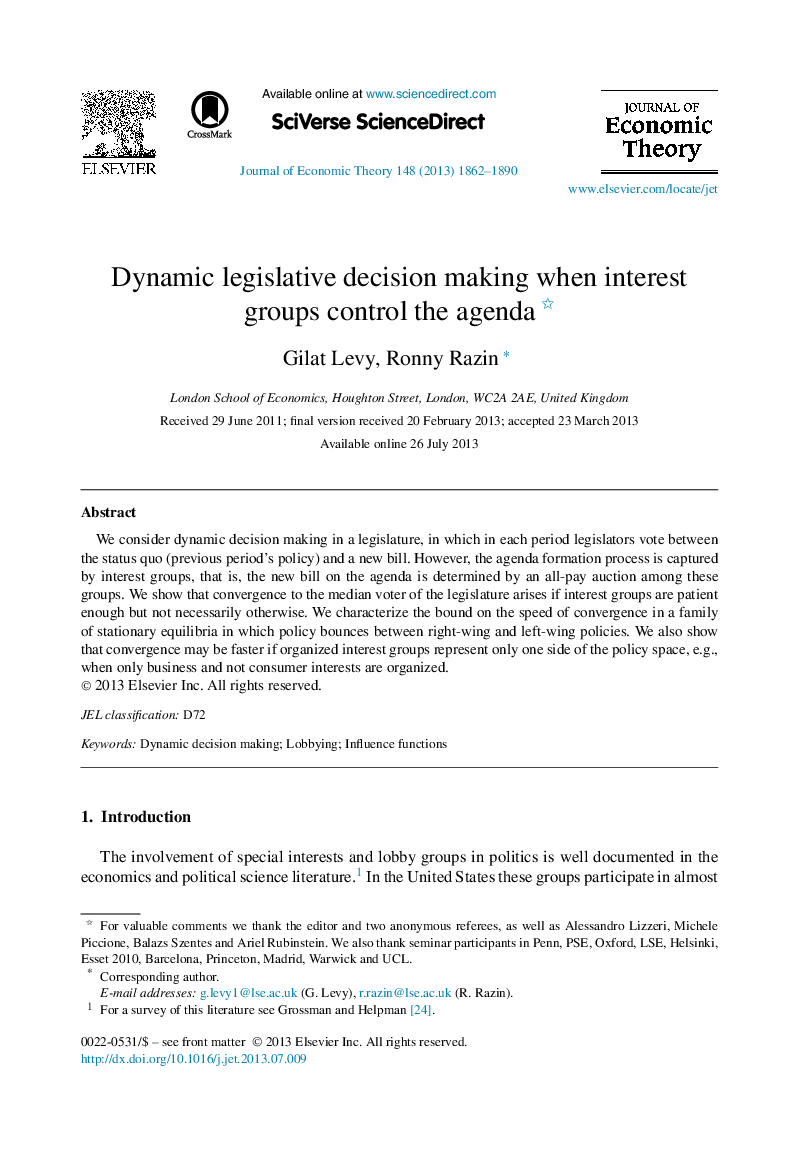| Article ID | Journal | Published Year | Pages | File Type |
|---|---|---|---|---|
| 10474294 | Journal of Economic Theory | 2013 | 29 Pages |
Abstract
We consider dynamic decision making in a legislature, in which in each period legislators vote between the status quo (previous periodʼs policy) and a new bill. However, the agenda formation process is captured by interest groups, that is, the new bill on the agenda is determined by an all-pay auction among these groups. We show that convergence to the median voter of the legislature arises if interest groups are patient enough but not necessarily otherwise. We characterize the bound on the speed of convergence in a family of stationary equilibria in which policy bounces between right-wing and left-wing policies. We also show that convergence may be faster if organized interest groups represent only one side of the policy space, e.g., when only business and not consumer interests are organized.
Related Topics
Social Sciences and Humanities
Economics, Econometrics and Finance
Economics and Econometrics
Authors
Gilat Levy, Ronny Razin,
